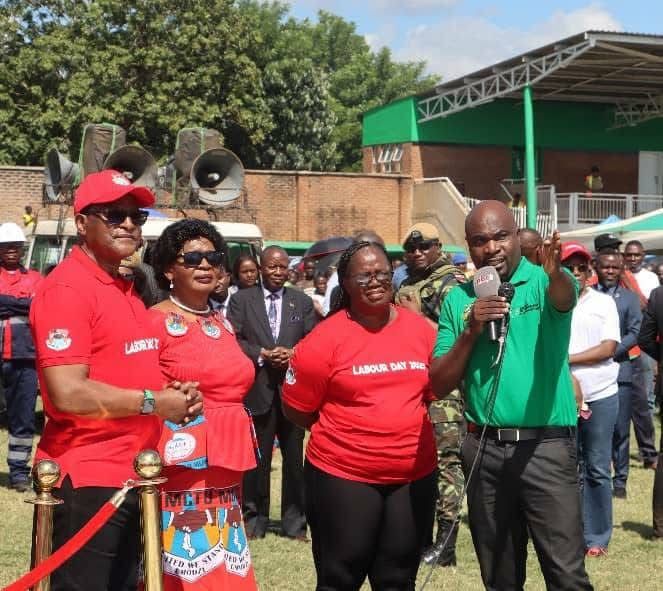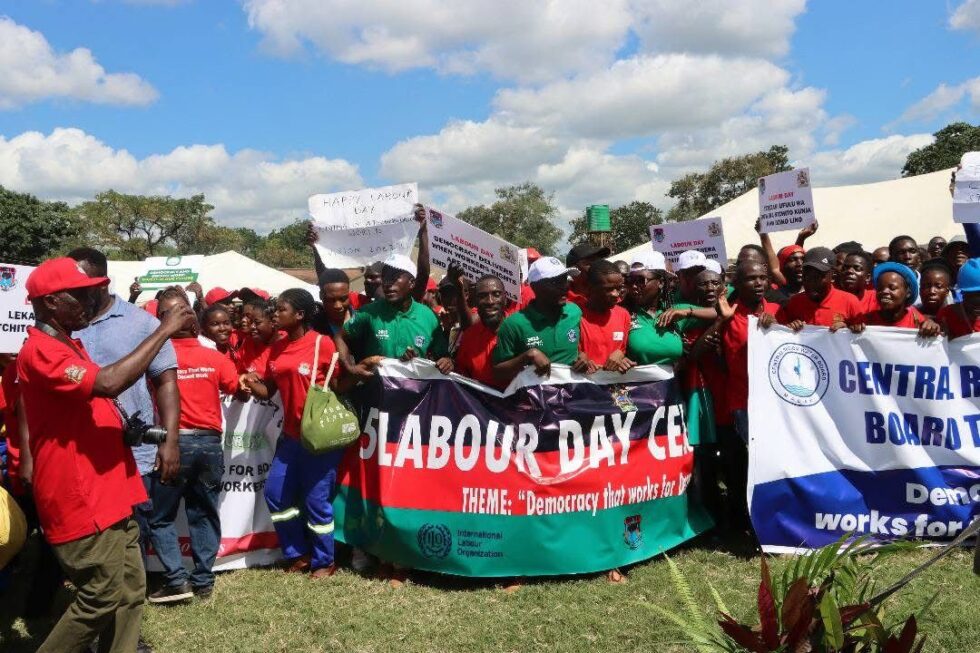By Jones Gadama
As the world unites to commemorate World Labour Day on May 1, Malawi stands at a critical juncture in its fight against child labour.
This year, President Lazarus Chakwera will lead the nation in Balaka district, a symbolic gesture that underscores the importance of this day in advocating for workers’ rights and addressing the pressing issue of child labour in the country.
While Malawi has made strides in enacting laws to protect children from exploitation, the reality on the ground reveals a stark contrast, with approximately 2.1 million children aged 5-17 years still engaged in child labour.

This situation calls for urgent attention and action from all stakeholders, including the government, civil society, and the international community.
World Labour Day serves as a reminder of the struggles and achievements of workers worldwide. It is a day to reflect on the rights of workers, the importance of fair wages, safe working conditions, and the need for social justice.
In Malawi, the commemoration takes on an added significance as it highlights the plight of children who are forced into labour, often at the expense of their education and well-being.
The presence of President Chakwera in Balaka is not merely ceremonial; it is an opportunity to galvanize support for policies and initiatives aimed at eradicating child labour and ensuring that every child has the right to a safe and nurturing environment.
Malawi’s legal framework prohibits child labour, with laws in place that aim to protect children from exploitation.
The Employment Act of 2000 and the Child Care, Protection and Justice Act of 2010 are pivotal in this regard, outlining the minimum age for employment and the conditions under which children may work.
However, the enforcement of these laws remains a significant challenge. Limited resources, inadequate monitoring mechanisms, and a lack of awareness among communities contribute to the persistence of child labour in various sectors, including agriculture, mining, and domestic work.
The economic landscape in Malawi further complicates the issue. With a high poverty rate, many families rely on the income generated by their children to survive. This economic necessity often forces children into the workforce, where they are subjected to long hours, hazardous conditions, and minimal pay.
The cycle of poverty is perpetuated as these children miss out on education, limiting their future opportunities and trapping them in a cycle of exploitation. The government must recognize that addressing child labour requires a multifaceted approach that not only enforces existing laws but also tackles the root causes of poverty and provides families with viable alternatives.
Education is a critical component in the fight against child labour. Ensuring that children have access to quality education can break the cycle of poverty and empower future generations. The government must prioritize investments in the education sector, making it accessible and affordable for all children.
Initiatives such as conditional cash transfers for families who keep their children in school can provide the necessary incentives to discourage child labour. Additionally, community awareness campaigns are essential to educate parents about the long-term benefits of education and the dangers of child labour.
The role of civil society organizations cannot be overstated in this context. Many NGOs in Malawi are actively working to combat child labour through advocacy, education, and support programs.
These organizations play a crucial role in raising awareness, providing resources, and holding the government accountable for its commitments to protect children. Collaboration between the government and civil society is essential to create a comprehensive strategy that addresses the complexities of child labour and ensures that children are not only protected but also empowered to thrive.
International support and cooperation are also vital in the fight against child labour.
Malawi is not alone in this struggle; many countries face similar challenges. The global community must come together to share best practices, provide financial assistance, and support initiatives aimed at eradicating child labour.
The Sustainable Development Goals (SDGs), particularly Goal 8.7, which calls for the eradication of child labour in all its forms by 2025, provide a framework for collective action. Malawi must leverage international partnerships to enhance its efforts and ensure that its children are not left behind.
As the nation gathers in Balaka to commemorate World Labour Day, it is imperative that the focus remains on the most vulnerable members of society—its children.
The presence of President Chakwera serves as a reminder of the government’s responsibility to protect its citizens, particularly those who cannot advocate for themselves. It is a call to action for all Malawians to stand against child labour and work towards a future where every child can enjoy their rights, receive an education, and grow up in a safe and nurturing environment.
The commemoration of World Labour Day in Malawi should not be a mere formality; it must be a catalyst for change.
The government must take concrete steps to strengthen the enforcement of child labour laws, increase funding for education, and implement social protection programs that support families in need. Communities must be engaged in the fight against child labour, fostering a culture that values education and prioritizes the well-being of children.
As we reflect on the significance of this day, let us remember that the fight against child labour is not just a legal obligation; it is a moral imperative.
Every child deserves the right to a childhood free from exploitation, where they can learn, play, and grow. The commemoration of World Labour Day in Malawi is an opportunity to reaffirm our commitment to this cause and to take meaningful action towards a future where child labour is a relic of the past.
As Malawi joins the global community in commemorating World Labour Day, it is essential to recognize the challenges that lie ahead in the fight against child labour.
The presence of President Chakwera in Balaka is a step in the right direction, but it must be accompanied by concrete actions and a collective commitment to protect the rights of children.
The time for change is now, and it is the responsibility of every Malawian to ensure that the future is bright for the nation’s children. Together, we can create a society where every child has the opportunity to thrive, free from the shackles of child labour.



